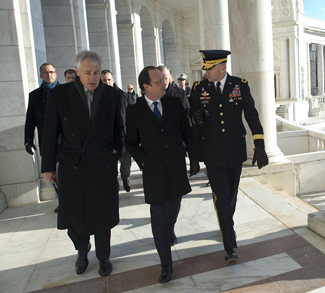Summary
Pakistani Taliban declared a 10-day ceasefire with the Pakistani government in response to the Pakistani government’s agreeing to impose Sharia Law in the Swat District. However, the imposition of Sharia Law will enable the Taliban and allied anti-American militant groups to consolidate local control, a necessary precursor to furthering their anti-American operations.
Analysis
On Sunday, a Taliban group declared a 10-day ceasefire in the Swat district of the Malakand division in the North West Frontier Province bordering Afghanistan.
The declaration of ceasefire is being categorized as a goodwill gesture by Taliban militants, in response to the Pakistani government agreeing to impose Sharia Law – strict Islamic religious rule – in the district.
Reports leaked out by Taliban militants earlier in the week indicate that pursuant to the negotiations with the Pakistani government vis-à-vis the Taliban’s demand of imposing Sharia Law in Swat, the Taliban agreed in exchange to release a Chinese engineer held captive by the militants for nearly six months. The release of the Chinese national comes just a day before Pakistani President Asif Ali Zardari is planned to visit China on an official state visit.
The picturesque Swat district, long a favoured tourist destination, has fallen to the Taliban and associated militant groups, despite the fact that, unlike the semi-autonomous tribal areas, the Swat district is supposed to be fully under Islamabad’s direct control. Actually, Islamabad has steadily lost control of a growing portion of the country.
Nonetheless, and despite al-Qaeda’s attempts to the contrary, local Taliban and allied anti-American militant groups are not inclined towards toppling the central government. Rather, these groups are content to refrain from engaging in hostility with the Pakistani government forces, so long as the latter give them free reign to continue their anti-American operations from Pakistani soil. The call for the imposition of Sharia Law is essentially a means for these groups to consolidate local control (a necessary precursor to furthering their anti-American operations).
After initial endeavours aimed at directly confronting the Taliban and allied militant groups failed, it appears the Pakistani government is now reversing course (again) and seeking political dialogue with these groups. Both sides have suffered huge losses, and the continued conflict, with direct American military involvement, threatens to collapse the country.
Nor are the Taliban and allied anti-American militant groups the only existential threat facing Pakistan: tensions continue to flare with its nuclear-armed neighbour, India over November’s terrorist attack against Mumbai; international pressure continues to rise vis-à-vis Pakistan’s domestic based militant groups; and, most problematic to Islamabad’s goal of securing popular support, the US, under President Obama, has increased its bombing campaign against Pakistani targets. This past week’s faux pas by the Senate Intelligence Committee’s Chairwoman, Senator (D) Feinstein, exposing the use of Pakistani bases in the launching of U.S. drones against Pakistani targets may portend a further deterioration of domestic support for Islamabad.
Little wonder, then, that Pakistan is looking elsewhere for international support, perhaps to China. Yet the Chinese are not favourably inclined towards a Pakistani peace deal with the Taliban as the Chinese are involved in their own brutal suppression of Muslim insurgents.
The Taliban move towards a ceasefire with the Pakistani army appears to be mirroring a similar deal reached by Sunni militants in Iraq. In 2007, the Iraqi Sunni militants, forced to simultaneously fight the Americans, foreign private (“contract”) armies, al-Qaeda and foreign militant groups, a multitude of Shia militias, and the Iraqi national army and paramilitary groups, chose to reach a ceasefire with the Americans in order to turn their attention to the other groups.
Similarly, the Pakistani Taliban is cornered in a vice between two armies: NATO forces across the border in Afghanistan, and Pakistani national armed forces at home. The ceasefire with Islamabad may provide the Taliban some breathing space, allowing them to focus on confronting NATO in Afghanistan ahead of the scheduled 30,000 troop increase the Obama administration is planning for this spring.
Thus, the Taliban ceasefire with Islamabad will not be favourably received in Washington when Pakistan announces the imposition of Sharia Law in Swat this Monday.
Manjit Singh is a contributor to Geopoliticalmonitor.com



